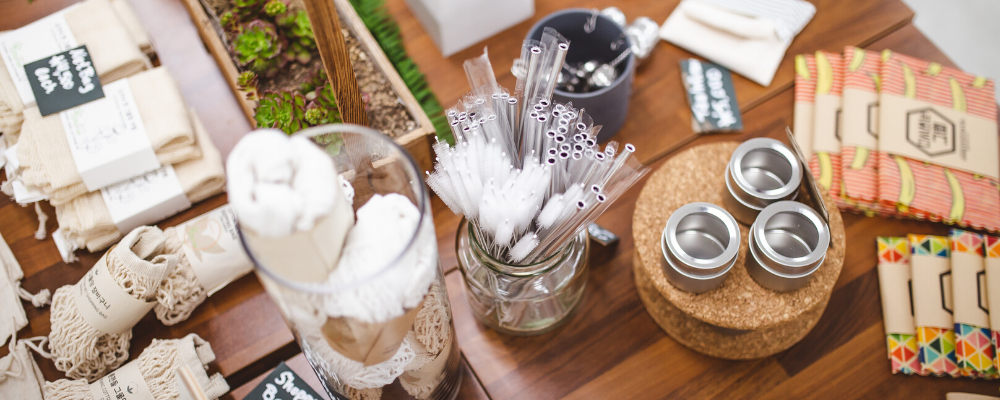We use cookies to make your experience better. To comply with the new e-Privacy directive, we need to ask for your consent to set the cookies. Learn more.
Save (the earth, your pocket and on clutter)

I like to think we all have great intentions when it comes to waste. I come from a family ruled by my mother, a Greek Catholic – the absolute epitome of no waste. (It’s true that to the Greeks there is no such thing as not being hungry. You eat regardless, or risk the wrath of a Greek woman, which never ends well for anyone involved). Is it possible to live a zero-waste lifestyle? I’m sure it is, but if that sounds like too high a mountain to climb, remember that even the smallest changes can make a big difference. If you make one small change, let’s say every month, by the time a year has gone by you would’ve made twelve great changes towards minimizing your household waste. It all really begins with mindfulness, which, like most things, takes practice.
Say, for example, you grab a coffee every morning on your way to work. Did you know that billions of disposable coffee cups fill our worldwide landfills every year? And the fix is easy – reusable coffee cups. What about that cocktail you have with your girlfriends every Friday, or that smoothie you grab once a week? Every beverage like this adds up to a straw every time, and straws are terrible choking hazards for marine life, not to mention most can’t be recycled. Easy-peasy to fix – try out these straws by Sip Conscious. You can buy them individually, or as a set, and you can choose between multiple colours. The shopping bag is another one. I cringe whenever I see people using plastic bags, because really, it’s become so easy to use other, environment-friendly bags which you can reuse and never have to be thrown away. They're fun, they're funky and they come in several different colour and pattern options. This applies to produce bags as well – instead of pulling a plastic bag off that roll at your local supermarket for your loose produce, you can try these out. They’re washable, durable and resuable.
Food packaging is responsible for so much of our household waste, and worst of all, a lot of it can’t be recycled either. In our quest to try to tamp down on what goes into our dustbin, and after that, into the landfills, there are practical and easy options towards this goal. Take Living Eco’s beeswax wraps (for adults and kids, mind you). These are super-useful for anything that needs to be wrapped (takeaways, sandwiches, cheese) or covered (leftovers for the fridge). They’re reusable and washable, and completely natural, so you can do away with that clingwrap and foil and never look back.
Repurposing is a simple concept, and will help alleviate so much of your clutter. Instead of throwing out your old clothes and shoes, why not donate them to an orphanage, hospice, or anyone who’s in need? If you’re anything like me, you have a groaning bookshelf at home. I recently went through every single volume I owned and filled two rubbish bags full of perfectly readable books, which I donated to my local library. My bookshelf still looked full afterwards, which could mean one of two things – I have way too many books, or I didn’t do a thorough enough job of clearing out my shelves. Glass jars can be incredibly useful for storage purposes (and you can save yourself the cost of more Tupperware), and the best news is you don’t have to spend a cent buying them – you can simply wash out and keep all the jars from pasta sauces, peanut butter, mayonnaise, and so forth. Use them when you go to stores which offer naked shopping (that is, food products with no packaging) and fill them up with dry produce like beans or rice. Glass is also a lot healthier than plastic, so there’s that added benefit too.
Recycling is an obvious one, but not enough people in South African are doing it. If you’re able to, and have a service in your area who offers it, it won’t cost you much and most companies have realized that people don’t have the time or energy to sort, so you simply clean and dry whatever can be recycled, and drop it all in one bag to be collected by the company. A surprising number of things can be recycled, and plastic items generally have symbols on them to differentiate between them. Have a look at this great guide.
Can you think of any other ways to reduce our waste? Riding a bicycle, perhaps? Anyone?


